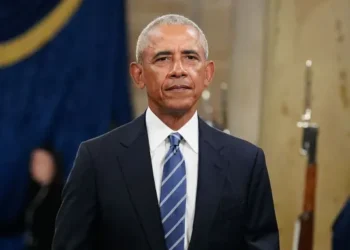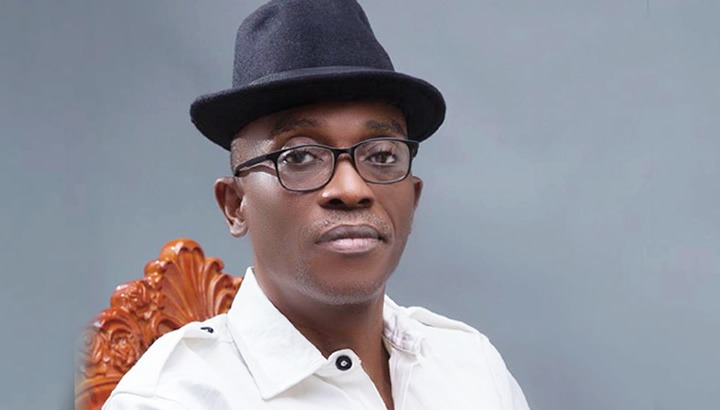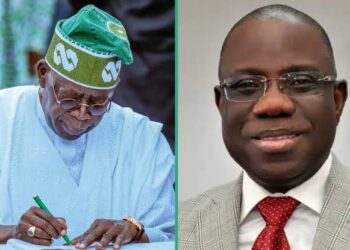Introduction.
It is no longer news to the entirety of the Nigerians, that the current trend is nothing other than poilitcs which symbolically portrays a mother to numerous outgone elections and the prospective ones—Presidential, National and State House of Assembly, Gubernatorial election—which are scheduled to take place on 25th of February & 11th of March 2023. Albeit, as regards the ‘gubernatorial’ election (hereinafter referred as governorship) will not be conducted in all the thirty-six states due to the fact that two among the states of federation—Osun and Ekiti—had undergone the process in the annum 2022.
Notwithstanding, this treatise seeks to justify the islamic stance on politics and election,and a deep dive into its ensuing content will serves an extensive justification.
CONCEPTUAL CLARIFICATION
It is quite essential on this premise to shed light on the concepts embedded in the subject-matter—Politics and Election. The Intellectual scribes of Merian-Webster Dictionary succintly puts it as the art or science of government.While the learned authors of Oxford Dictionary describes poilitcs as the activities involved in getting and using power in public life,and being able to influence decisions that affects a country or a society.In another sense, a political scientist—Harold Lasswell—explains it as who get what, when and how.
That is, the elites are the primary holders of power.The father of political science, Aristotle opined in a famous quote ‘Everyman is a social and political animal’ which signifies that politics is essential for a man to know his surroundings and environment. Also, Socrate claims that the goal of politics is to make the citizens as good as possible so that they live the best lives. And by making the citizens “good” he means that the politicians should instill virtuous characteristics such as self-control, bravery, piety and justice in his citizens.A Canadian-American Political Scientist—David Easton—put it as the authoritative allocation of societal values, meaning politics encompasses the various processes through which government respond to pressure from the larger society;in particular by allocating benefits, rewards or penalties. Andrian Leftwich opines that politics is at the heart of whole social activity, formal and informal, pubic and private in all human groups, institutions and societies.
In a similar fashion,a prominent academic in the politics department at the University of York assumes that politics is at the heart of whole collective society activity, formal and informal, public and private in all human groups, instutions and societies.Whereas ‘election’ according to John Ugoji Anyaele depicts an act of choosing or selecting candidates who will represent the people of a country in the parliament and other positions in the government.
Moreso, the supra lexicon (hereinafter referred as Merian-Webster Dictionary) portrays it as the act or process of choosing someone for a public office by voting.Without much ado, politics and election are twin but complentary pillars of government.
THE ISLAMIC STANDPOINTS ON POLITICS.
First off,the politics that expatiate the regulation of human life is embedded in the provision of Qur’an 7 (Surah al-ahraf), V.157 while making the decision of the holy prophet thus: ‘ Those who follow the Apostle-prophet, the Ummi, whom they find written down with them in the Taurat and the injeel(who) enjoins them good and forbids them evil,and makes lawful to them impure things,and remove from their bounds and the shakles which were upon them;so(as for) those who believe in him and honour him and help him,and follow the light which has been sent down with him, these it that are the successful. “The Quranic exigesis is an indepth part of Islaam and the foundation of the religion which is mandatory upon all Muslims to implement its provision.
In the same vein, politics is also a holy struggle which is not in line with the means and ways affirmed by the provision of Quran 42 (Suratu Shurah) v. 13 “He has made plan to you of the religion what He enjoined upon Nuh and that which which have revealed to you and that which we enjoined upon Ibrahim ,Musa, and Issa that keep to obedience.” In futherance, a deep dive into the history of Islaam in the past century, especially the legends of the prophet.Ali Ibn Abi-Talib and his scion will serves as a better understanding on the position of politics in Islaam.Moreso,heavy reliance on the glorious Qur’an, different literatures on the Quranic exegisis,will broaden the horizon more in respect of politics in Islaam.
THE CONTEXTUAL PROVISION OF THE SHARIA’H-ISLAMIC LAW-ON POLITICS.
There are numerous texts in the Sharia’h that hinge on the fact that politics is an important aspect which could not be sidelined from Islaam. Be that as it may, Islaam and politics are two different words with a single understanding. That is, politics portrays Islaam and Islaam portrays politics;this statement had equally received statutory blessings vide plethora of hadith—Prophet sayings, which are aptly captured below:
“You are the rulers of the worshippers” (tahdhibul-ahkam pg 679)
“The leader is known with politics”(Al Majlis 97,679), Ahmaali Sodooq(P679)
The israelites are guided by their prophet’s poilitcs.(Riyyadus-sooliheen,Hadith 224)
Concerning the foregoing,Ali bn Abi-Talib also say to King Ashtur Anakahiy thus:”Regulate the affairs of your country,with the pious and knowledgeable people,and the political scholars.” The Prophet (PBUH),says:lead your battalions, advise them to adhere the stricts rules of Allah, His prophet,their leader,teach them knowledge and politics.”(Biharul-Anwar: Majlisy,pg 247)
In a similar fashion, the prophet also says in a book titled-Kararu-l-ukmi–at page 339 thus: “The best politics is equality”. Moving further, prophet Muhammad (PBUH) once says to Muhawiyyah,the son of Abi Suffyan thus: “O Muhawiyyah! when will you lead the affairs of the citizens and its sovereignty.Be that as it may,the commentary of this, is that, affairs of the country is not saddled with Muhawiyyah,nor his predecessors but the prophet and his four rightly guided caliphs and those after them.All in all,Islamic politics/politics is built upon the foundation of strict equality, human honour,and forgiveness, alongside power cum endurance.
QURANIC PROVISIONS ON POLITICS
The holy Qur’an which is known to be the noble book sent to Prophet Muhammad through Angel Jibril for the guidance of Mankind has equally make numerous justification on politics in Islam,as this will be evident in the coming paragraphs:
First, Q. 38(Suratu Saad) v.26 succintly establishes thus: “O Dawood! surely we have made you a ruler in the land; so judge between men with justice and do not follow desire ,lest it should lead you astray from the path of Allah (as for those)who go astray from the path of Allah, they shall have a severe punishment because they forget the day of reckoning.”
Second, Q.38(Suratuss-Saad)v. 28states :”Shall we treat those who believe and do good like the mischief-makers in the earth?Or shall we make those who guard (against evil)like the wicked?”
Third, Q.10(Suratu Yunus) v.14 provides that: “Then we have made you successors in the land after them so that we may have seen how you act”
Fourth, Q.2 (Suratul-Baqorah) v.30 establishes thus:”And when your lord said to the angel,I am going to place in the earth a khalifa(vice-gerent), they said: What! with thou place in it such as make mischief in it and shed blood and we celebrate thy praise and extol thy holiness?He said: surely, I know what you do not know.
Fifth: Q.4(Suratu -Nisah) v.58-59 avers that: “Surely Allah commands you to make over trusts to their owners and that when you judge between people, you judge with justice; surely Allah admonishes you what is excellent; surely Allah is seeing, hearing.”
Sixth:Q.28(Suratul-Qasas)v. 83 states thus:”(As for) that future abode,we assign it to those who have no desire to exalt themselves in the earth nor to make mischief and the good ends is for those who guard (against evil).
Seventh: Q.22(Suratul-Hajj)v. 41 asserts: “Those who, should we establish them in the land,will keep up prayer and pay the poor-rate and enjoin good and forbid evil; and Allah is the end of all affairs.”
Eighth: Q.40(Suratul-Ghafir)v.38 provides that: “And he who believed said:O my people! follow me,I will guide you to the right course.”
Ninth:Q.9 (Suratu-Taobah)v 38 avers thus: “And if they break their oaths after their agreement and(openly) revile your religion, then fight the leaders of unbelief—surely,their oaths are nothing—so they may desist.
Tenth: Q.8(Suratul-Anfal) v.61 establishes that: “And if they incline to peace,then incline to it,and trust in Allah; surely He is the hearing,the knowing.”
Eleventh: Q 3 (Suratul Al-Imran) v.159 states: “Thus it is due to mercy from Allah that you deal with them gently,and had you been rough,hard hearted ,they would certainly have dispersed from around you;pardon them therefore and ask pardon for them,and take counsel with them in the affair;so when you have decided,then place your trust in Allah; surely Allah love those who trust.”
Twelveth: Q.48( Suratul Fatihi)v. 18 establishes thus: “Certainly Allah was well pleased with the believers when they swore allegiance to you under the tree,and He knew what was in their hearts,so He sent down tranquility on them and rewarded them with a near victory.”
Thirteenth: Q.7 (Suratul Araf)v.157 assert: “Those who follow the Apostle-prophet,the Ummi, whom they had written down with them in the Taurat and the Injeel (who) enjoins them good and forbid them evil and make lawful to them impure things,and remove from their burdens and the shackles which were upon them;so(as for) those who believe in him and honor him and help him,and follow the light which has been sent down with him,they are the successful.”
In the lens of the supra provisions, it is very lucid and vivid that the Qur’an has justified the issues of politics with the ensuing contents of the verses,that centralize on Leadership, succession (khilafah), state affairs, rulings etc. The Quran has made them as fidelity and loyalty at the beck and deck of the rulers, a dogmatic neccesity cum guidance;all in a bid to actualize equality, strict adherence to the legal provisions,and a policy that guide the truths,equality,good, in the current availability.
PROPHETIC SAYINGS IN LINE WITH POLITICS
There are various hadith of the best of Mankind that hinges on politics and few among them shall be justified below:
i. ‘Umar reported that the Prophet, may Allah bless him and grant him peace, “All of you are shepherds and each of you is responsible for his flock. A man is the shepherd of the people of his house and he is responsible. A woman is the shepherd of the house of her husband and she is responsible. Each of you is a shepherd and each is responsible for his flock.” Al-Adab Al-Mufrad 21 In-book reference Book 10, Hadith 1English translation : Book 10, Hadith
ii He who wakes up without any concern for the affairs of Muslims, is not a Muslim: and he who hears the cry, ‘0 Muslims!’ without responding is not a Muslim.
iii A narration in Muslim is: Messenger of Allah (PBUH) said, “A ruler who, having control over the affairs of the Muslims, does not strive diligently for their betterment and does not serve them sincerely, will not enter Jannah with them.
iv. A person asked the Prophet (PBUH)(when he had just put his foot in the stirrup): “What is the highest form of Jihad?” He said, “Speaking the truth in the presence of a tyrant ruler”.
v.Abu Hurairah (May Allah be pleased with him) reported:Once the Prophet (PBUH) was speaking to us when, a bedouin came and asked him: “When will the Last Day be?” The Messenger of Allah (PBUH) continued his talk. Some of those present thought that he had heard him but disliked the interruption and the other said that he had not hear him. When the Messenger of Allah (PBUH) concluded his speech he asked, “Where is the one who inquired about the Last Day?” The man replied: “Here I am.” The Messenger of Allah (PBUH) replied, “When the practice of honouring a trust is lost, expect the Last Day.” He asked: “How could it be lost?” He replied, “When the government is entrusted to the undeserving people, then wait for the Last Day.”[Al- Bukhari].
vi Another narration is: Allah’s Messenger (PBUH) said, “He who does not look after his subjects with goodwill and sincerity, will be deprived of the fragrance of Jannah.”
THE ISLAMIC JURISPRUDENCE MAXIM OF WARDING OFF CORRUPTIONS/EVILS TAKES PRECEDENCE OVER BRINGING BENEFITS (DAR’UL MAFSADAH MUQADAMU ALA JALBIL MASLAHA) VIS-A-VIS POLITICS
This supra maxim succintly justifies all affairs that will be carried out by the government in an effective and effectual manner. Be that as it may,the extant meaning of this maxim justifies that ,warding off evil, avoiding and refraining from it, and if evil is contradicting benefits, protecting it shall always surpass.Pursuant upon this, adhering strictly to the Sharia’h ruling via abstinence from evils surpasses strict adherence to forbidden acts. Therefore, the spirits and letters of the supra maxim is to guiding and strengthening the government, and the totality of the state in which Nigeria is not an exception.In furtherance, the maxim serves as a better aid for different purposes in the governmental affairs,to wit; qualitative education, protection of human dignity,steering of the economy, in-depth understanding of the political office, and a host of others.In a nutshell,total abstinence from evils/corruption will assist the government in dancing to the public tune.
SOME ISLAMIC SCHOLARS’ VIEWS ON VIEW POILITCS.
The prolific writer -Sheikh Adam ABDULLAH Al-Ilory gave a brief justification of politics in one of his Arabic and didatic poem,which is translated thus:
They direct, directing, directors and the governed. Western democracy is a nightmare.
Its origin is money, and a possesor of cankerworm.
The politics that has no lexicon. Oh I am sorry, it has lexicon
Its lexicon is the tax, collected by tax officals and police.
Its motto portrays injustice and corruption, dictate by the state upon the governing bodies.
Its affairs are incomplete, coupled with mobb and hullabaloo.
In another vein, Sheik Sulaimon Adeyemi, the incumbent director of Ibadullah Islamic school, Lagos, made a remarkable point on poilitics at a conference which was held in Lagos, during a February-weekend, 2023 while he enjoins us thus: “Let’s adhere strictly to the provision of Quran 5 ( Suratul Maidah), v.2 “And help one another in goodness and piety, and do not help one another in sin and aggression.” He equally used a poem of one of the intellectual poet—AR-ROSOPHY— to advice the politicians and prospective office holders, as succintly captures thus: “Don’t disguise or pretend to be what you are not.”
ELECTION:THE ISLAMIC PERSPECTIVE
It is a well known fact that Nigerians are preparing for presidential election, gubernatorial election (governorship),national and state house of assembly. Consequent upon this, a heated debate had been birthed among Nigerians as to the preferered candidate. Against this backdrop, a distinction has to be justified between democracy—government of the people by the people and for the people—an intellectual system that contradicts islamic reality and philosophy. Whereas, the duo(election and democracy), people have mistaken them to be the same. However, elections are official devices used in getting to the key positions, not an ideology or a system. It could be used interchangeably with voting, and the right to vote is termed as franchise.
So, linguistically speaking, voting is the act of selecting the preferered candidate who will represent the people’s interest at the key’s position.
Technically, or in the Sharia’h’s view, Dr Fahd Al Ajlaan defined election as :” a method in which citizens or some of them,choose whom they are satisfied with and achieve through it how to determine who is eligible for the mandate or mission they are elected for.” In another sense,Dr Mustapha Sibahi equally avers thus:”The election is the nation’s choice of the people (proxies)to represent them…”
JUSTIFICATION FOR THE LAWFULNESS OF ELECTION :ITS PROVISIONS FROM THE LENS OF QUR’AN & SUNNAH.
The justification in the light of Quran and Sunnah are aptly captured below:
1.Quran 5 (Suratul Maidah),v.2 ;Allah(SWT) succintly states: “And cooperate in righteousness and piety,and do not cooperate in sin and aggression.”It could be inferred from this provision that if the election take the people to a position of influence in the decision-making process as required by the Sharia’h,then the election is part of cooperation in righteousness and piety.
2.The Hadith of the prophet (PBUH):”If three go out on a journey,let them select one of them as the leader over them.”Narrated by Ahmad and Abu Dawood,and a group of scholars authenticated it.Without a modicum of doubt,a group of people making one of them their leader;either by consesus on him or vide choice portrays a selection of choice or election.
3.Sheik Islaam-Ibn Taimiyyah,may Allah have mercy on him said in his adorable book”AS-SIYASSATU AL-SHAR’IYYAH” (POLITICS OF ISLAAM): “So the prophet (PBUH),made it obligatory to appoint one person in a small gathering that is occasioned journey,as a way to call attention to it for all other types of people.”In the light of this hadith,it could be deduced that this encapsulates all civil societies, institutions, unions and other well-known forum in this era—they choose or select their leaders in line with the regulations and enforceable law,so far it does not contradict the Sharia’h.
4.The content of the Hadith of second pledge of allegiance at Aqaba,when the prophet (PBUH) said:” Get out twelve captains from among you who will be (leaders) over their people.So,they did so.Albeit,this hadith is authenticated by Sheik Nasirudeen Al-Baani.So,the saying of the prophet:”Go forth to twelve..”portrays he ordered the appointment of twelve deputies and their representatives.It is crystal clear that this is the reality of election irrespective of its method and mechanism.
5.Umar—may Allah be pleased with him—named six group of senior companion,may Allah be pleased with them.They are:Uthman Ibn Affan,Ali Ibn Abi Talib,Al-Zubair bin Al-Awam,Talha ibn Ubaidu-Llah,Sa’ad ibn Abi Waqqas,&Abdul Rahmon bin Awf.So,he made choosing the Khaleefah a consultation among them in his saying: “I do not know of anyone who is more deserving of this matter than these people, whom the messenger of Allah-may the salutations and peace of Allah be upon him and his family were pleased with at the time of passing away, so whomever they appoint after me is the Khaleefah. So listen to him and obey.”(Al-Bukhari). It could be understood in the supra Hadith that this is a way of the guided khaleefs, when Abubakar Sidiq entrusted Umar with the Khalifah,and the method adopted by the prophet by leaving the choice to the Ummah, by delegating the matter to the Muslim which was used by the prophet (PBUH). So, all of these methods are in line with Sunnah and mechanisms that can transform. The constant is their goal, which is that the best should be made the leader as much as possible.
SEGMENTS OF PARTICIPATION IN ELECTIONS WITH RESPECT TO THE PROSPECTIVE GOVERNMENT.
These segments are captures into three phases viz;
1.Participation in election in a Muslim country governed by the Sharia’h
2.Participation in election in a Muslim country not governed by the Sharia’h
3.Participation in election in Non-Muslim Western countries.
ANALYSIS OF THE THREE SEGMENTS
1.Participation in election in a Muslim country governed by the Sharia’h: The islamic ruling of the voter’s engaging in election is endorsement and permissibility, if he (the voter) participates, it is mandatory upon him to choose the person he knows, because this serves as the requirement of conducting recommendation for Allah, his messenger, the leader of the Muslims and their nations. In a similar vein, Sheikh Yusuf al-Qardawi opines that election may be mandatory for the person when his vote would aid the trustworthy and competent person in getting to the key position, while his refusal to vote could lead to winning by the incompetent person.(Fiqh ud-Dawlah Qardawi). This is indeed, a normative in this era’s election where majority is considered, regardless of competence and eligibility.
2.Participation in election in a Muslim country not governed by the Sharia’h: Most scholars went ahead to allow participation in the election for those who intend to achieve some benefits and ward off some evils,bso that they may (through that) strengthen the religion of Allah and the generality of Muslims. Such as the situation in Turkey recently, involvement of Muslims in these non-islamic governments,will play a role that will prevent the monopoly of the evil-doers and the secularists to attain power. So, through the participation of Muslim, they can defend the rights of citizens, and protect their boundaries which Allah has commanded by dint of the provision of Q.4 (Suratu-Nisa)v.75 “And why should you not fight in the cause of Allah and of those who,being weak are ill treated(and oppressed)? Men, women, and children, whose cry is “our lord! rescue us from this town,whose people are oppressors;and raise for us from thee one who will protect,and raise from the one who will help!”Along the same lines,Sheikh Ajlan views if from the angle of taking up of the lesser of two evils ,to prevent a greater one, which at the same time is a neccesity and neccesity makes the forbidden matter possible.
3.A consesus of the contemporary scholars had submitted that the Muslims countries may participate in the election taking place in the country they have declared it permissible, even though the elections are conducted/runned on a non-shariah principles.It could be inferred from this category that, this is a perfect instance of Nigeria’s situation, because it is a country that encompasses different kind of religious set.As result of this,it is permissible for every Muslims who may wish or desired to exercise their franchise.
CONCLUSION
A civil right legend—Martins Luther King, once asserts on politics thus:right delayed is a right denied.That is, its a right that must not be underrated nor overlooked for any interested persons. Without a modicum of doubt, nor conjecture, poilitcs cum election vis-a-vis the islamic perspectives are quite essential as extensively justified by the ensuing content of this treatise.In the same vein, election/voting has received statutory blessings vide a particular provision of Section 117 (2) of the fons et origo (1999 Constitution as amended),which provides that: “Every citizen of Nigeria, who has attained the age of eighteen years residing in Nigeria at the time of the registration of voters for purposes of election to any legislative house, shall be entitled to be registered as a voter for that election.”
May almighty Allah heal Nigeria from all forms of wounds, be it physical,or non-physical, and may He grant her the best leaders that will pilot her affairs to the promised land.Aamin.
REFRENCES.
https://ar.m.wikipedia.org/wi
http://www.alshirazi.net/maqalat/68.htm
https://www.britannica.com/topic/Politics-Who-Gets-What-When-How
https://tmcng.net/an-islamic-perspective-of-participation-in-elections/
https://www.bartleby.com/essay/Socrates-s-Political-Theory-Of-Politics-
Oxford Advanced Learner’s Dictionary (New 9th Edition)
Merian-Webster Dictionary
VerbAce for Android
Translation of Sheik Adam Abdullah Al-Ilory’s poem on politics
Sheik Sulaimon Adeyemi’s presentation on poilitics, held at Lagos.
https://sunnah.com/riyadussalihin:653
https://forum.wordreference.com
https://www.azquotes.com/author/8044 Martin_Luther_King_Jr/tag/politics
iQUR’AN LITE
The Nigerian Constitution(1999 as amended)
ABOUT THE AUTHOR
Jimoh AbdulGaniy Adisa, is a pupil of Law,at Faculty of Law, Bayero University, Kano, a writer,educator, and a legal researcher. He is a member of Al-Maslaha Chamber, Equity Chamber, and a Law Clinician. He is the Former Director of Media and Publicity, National Association of Kwara State Law Student, BUK chapter, and the Current Assistant Secretary General of the Association. He equally emerged as the 1st runner-up at Oratory Paper Presentation contest of an essay titled : ‘IP Rights for AI-Generated Inventions:Legal issues and Prospects’, organised by National Association of Kwara State Law Student, head at the Headquarters Chapter, Ilorin, Kwara State, on 2nd of January, 2023. He could be reached via the following social media handles: jimohadisa546@gmail.com,Whatsapp:08090666588, Linkedin:https://www.linkedin.com/posts/jimoh-abdulganiy-adisa-100121212











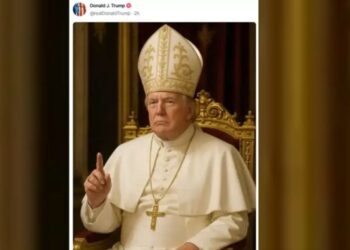
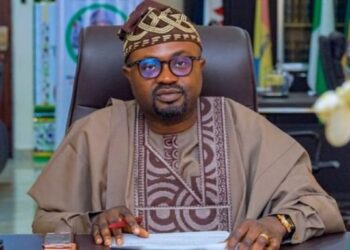

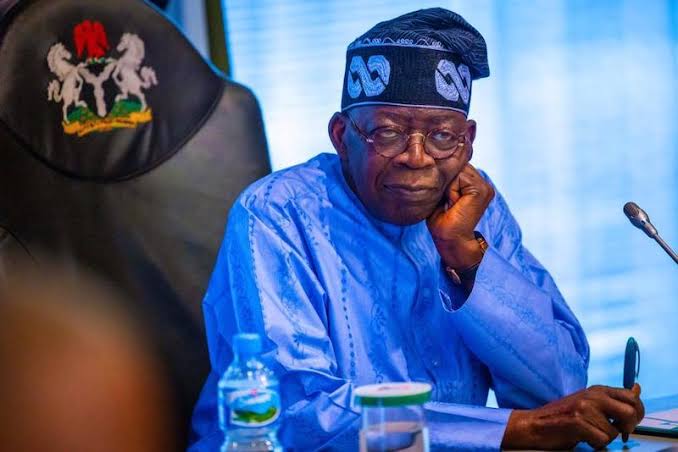
![[Insider] Power Play at OAU: New PRO-CHANCELLOR Bullying Tactics](https://ideemlawful.com/wp-content/uploads/2024/11/OAU-Front-View.webp)

